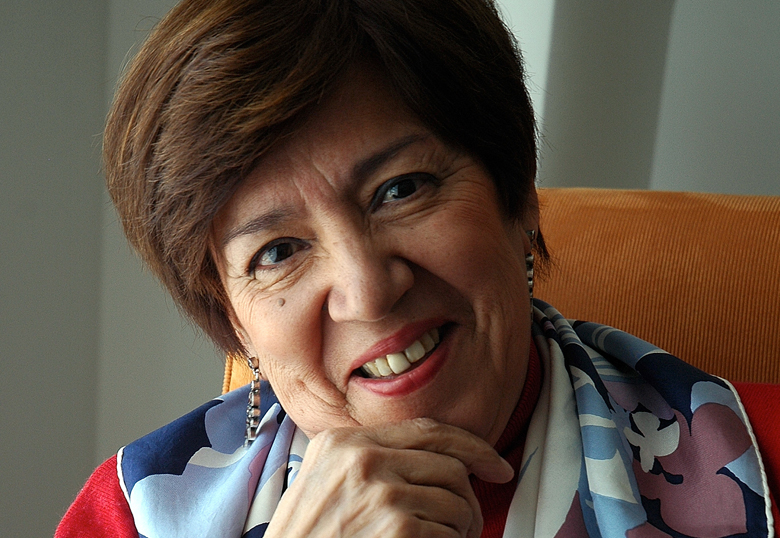One of the world’s foremost cancer researchers, and the woman largely credited with discovering the role of the human papillomavirus as the central and necessary cause of cervical cancer, will present a pair of talks at the University of Lethbridge on Wednesday, October 29, 2014.

Dr. Nubia Muñoz, former Unit chief at the International Agency for Research on Cancer in Lyon, an Emeritus Scientist of the National Cancer Institute of Colombia, and a member of the Society of Scholars of Johns Hopkins University in Baltimore, MD, comes to campus as part of the Gairdner Foundation Speaker Series.
“This is an outstanding opportunity to hear a true cancer research pioneer,” says University of Lethbridge Interim Vice-President (Research) Dr. Lesley Brown. “Dr. Muñoz’s groundbreaking work has had worldwide implications and she is universally respected in her field. It is a great honour that we are able to facilitate these speaking engagements for her.”
Muñoz will address U of L faculty, staff and students at 1:15 p.m. in the Students’ Union Ballroom A as she presents Challenges and New Approaches to Cervical Cancer Prevention. She will also give a public presentation, in conjunction with the Southern Alberta Council on Public Affairs and moderated by graduate student Jillian King, at 7 p.m. at the U of L’s Dr. Foster James Penny Building. Muñoz will present The Efficacy and Safety of the HPV Vaccine. Throughout the day, she will interact with students from the University’s Faculty of Health Sciences and speak to a class of Public Health students.
“To be able to expose our students to a researcher such as Dr. Muñoz, whose work has led directly to massive changes in public policy worldwide, is a very valuable learning experience,” says Faculty of Health Sciences Dean, Dr. Chris Hosgood. “Her research stands as an excellent example to our students about how they too can make a real difference in society.”
Her epidemiological research on cancers linked to infectious agents has seen Muñoz implement various research projects in over 30 countries around the world. In addition to demonstrating the role HPV plays in the cause of cervical cancer, her work has shown the causal role of hepatitis B virus (HBV) and hepatitis C virus in liver cancer.
Her research findings have had important implications in the primary prevention of cervical cancer through the use of prophylactic vaccines and on secondary prevention, through the use of HPV tests in screening programs. She has also played an integral role in the initiation of the first HBV vaccine trials to prevent liver cancer in The Gambia, and later on the initiation and implementation of HPV vaccine trials to demonstrate their efficacy in the prevention of cervical cancer worldwide.
In 2008, Muñoz was nominated jointly with Harald zur Hausen for the Nobel Prize of Medicine and received the first Canada Gairdner Global Health award from the Gairdner Foundation.
The Canada Gairdner Awards were created in 1959 to recognize and reward the achievements of medical researchers whose work contributes significantly to improving the quality of human life. They are Canada’s only globally known and respected international science awards, and Gairdner is the only national organization that consistently brings the world’s best biomedical researchers to Canada to share their ideas and work with scientists across the country. In so doing, it enlarges networks and enhances Canada’s international reputation, while providing a realistic and unbiased benchmark for Canada’s leading scientists.
